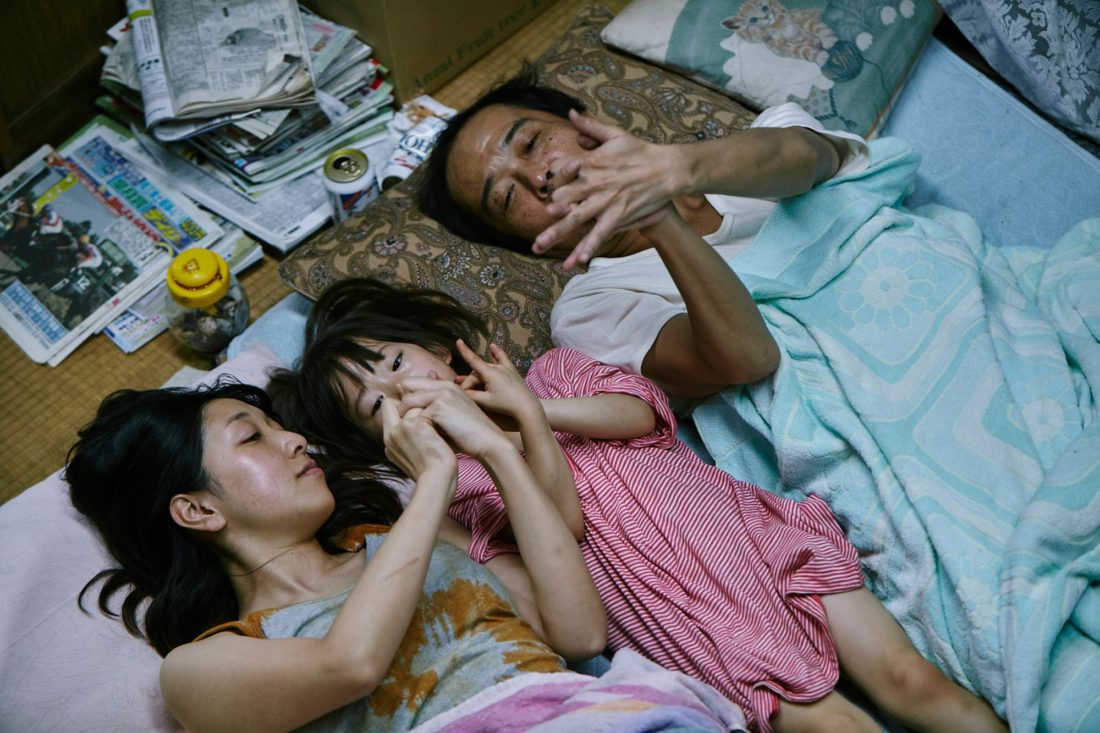
’Tis the season for heartwarming family films, reminding you that your family sucks and will never have the kind of relationship Hollywood says it should. And perhaps that’s what makes Japanese writer/director Hirokazu Kore-eda’s Palme d’Or winner, Shoplifters, such a welcome respite, a bastion of believability at a time of year when “family” is often little more than a cinematic byword for lazy saccharinity. For Kore-eda, family is more than a mechanism for emotional manipulation: It’s a living, breathing, dynamic entity that moves under its own impetus to inspire the affect it aspires to achieve. All filmmakers who would deign to consider making a quirky family drama should start taking notes because Kore-eda’s showing you how it’s done.
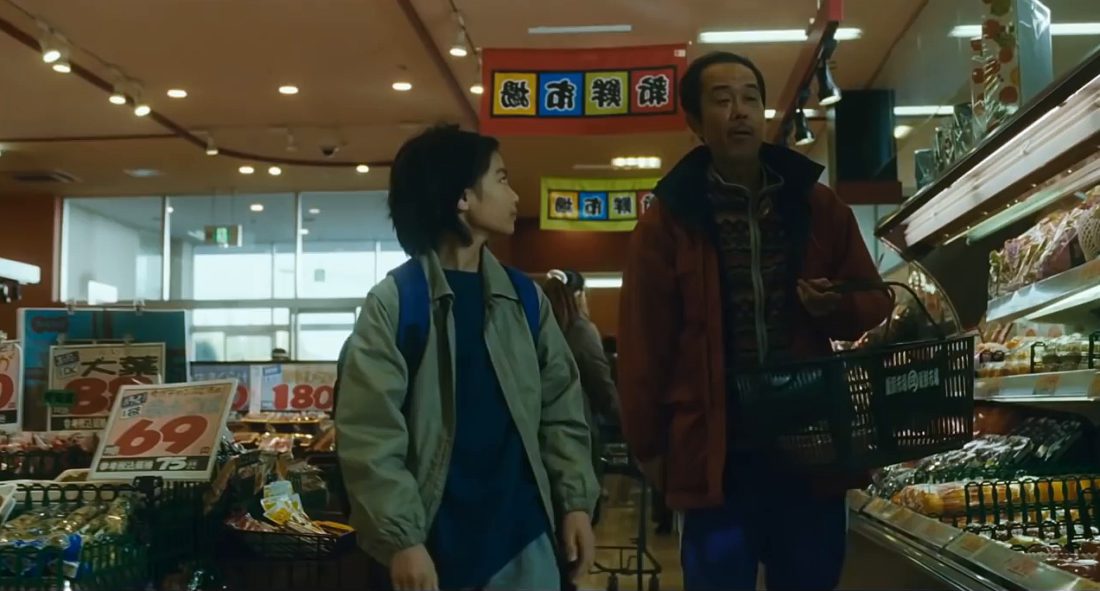 The atypical family at the core of Kore-eda’s narrative is an odd amalgam, a nontraditional nuclear unit of uncertain provenance living in a run-down Tokyo hovel. These are the shoplifters of the title, and we’re first introduced to dad Osamu (Lily Franky) and son Shota (Kairi Jyo) stealthily pocketing the weekly groceries at a neighborhood supermarket. This is how Osamu provides for his family, but it’s also more than that — there’s bonding in the shared risk. Kore-eda normalizes these petty crimes to such an extent that they feel almost wholesome, like a father-son fishing trip (incidentally, a metaphor Kore-eda returns to throughout the film). If this unconventional familial arrangement seems fated to come to a bad end, well, that’s because it probably will — but the specifics of our protagonists’ struggles are far from what you might expect.
The atypical family at the core of Kore-eda’s narrative is an odd amalgam, a nontraditional nuclear unit of uncertain provenance living in a run-down Tokyo hovel. These are the shoplifters of the title, and we’re first introduced to dad Osamu (Lily Franky) and son Shota (Kairi Jyo) stealthily pocketing the weekly groceries at a neighborhood supermarket. This is how Osamu provides for his family, but it’s also more than that — there’s bonding in the shared risk. Kore-eda normalizes these petty crimes to such an extent that they feel almost wholesome, like a father-son fishing trip (incidentally, a metaphor Kore-eda returns to throughout the film). If this unconventional familial arrangement seems fated to come to a bad end, well, that’s because it probably will — but the specifics of our protagonists’ struggles are far from what you might expect.
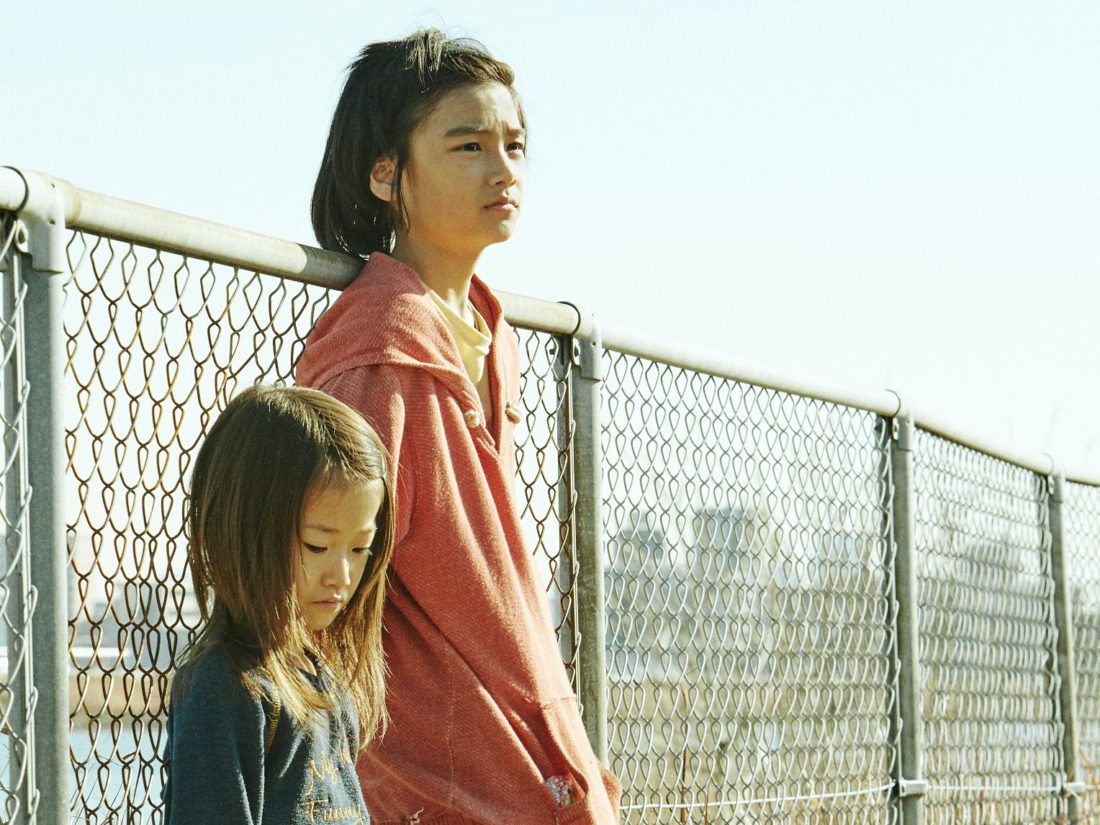
Those struggles arrive in the form of Juri (Miyu Sasaki) a young girl rescued from a life of abuse and neglect by Osamu and Shota. When the duo come across her sitting alone on a cold outdoor porch, they can’t help but be moved by her plight. Osamu’s wife, Mobuyo (Sakura Ando), prudently points out that taking the girl in is tantamount to kidnapping, but Grandma (Kirin Kiki) warms to her immediately, gently rubbing ointment on the scars left by her mistreatment. And so the family proceeds in an unlikely routine; eldest daughter Aki (Mayu Matsuoka) stripping in a sex club, Mobuyo tirelessly toiling as a laundress, Osamu working the occasional construction gig, Grandma cashing her pension checks and defrauding the public housing inspectors to keep a roof over everybody’s heads. But as Shota begrudgingly takes Juri under his wing and teaches her the real family business, a brutal reality check looms inevitably on the horizon.
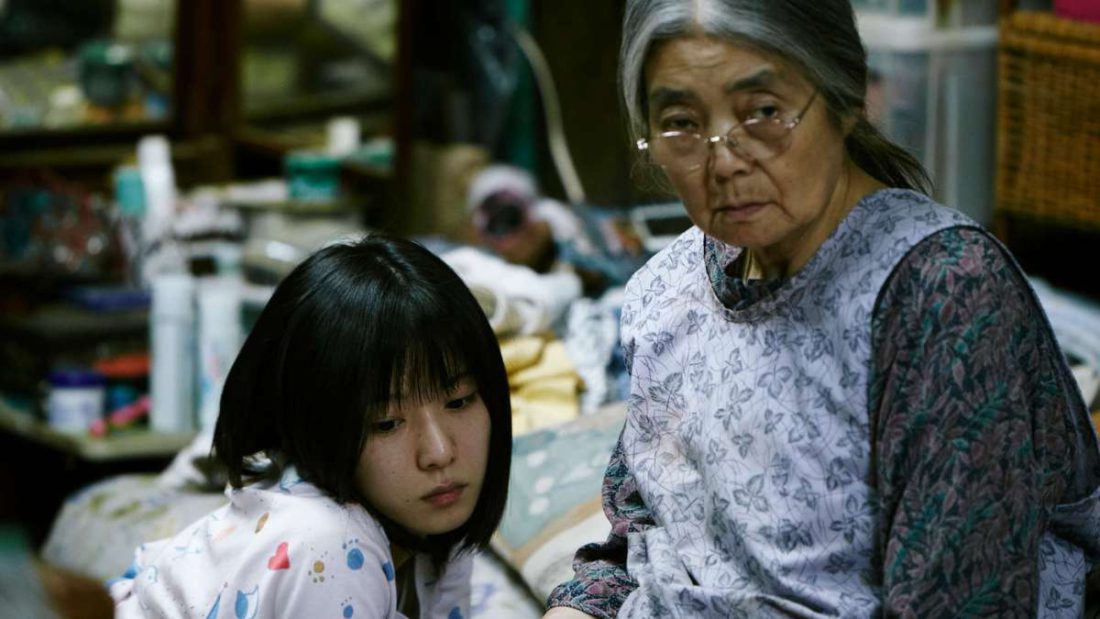
Kore-eda’s plot and pacing are as meticulously constructed as a Swiss watch, and his script respects the audience’s intelligence enough to imply rather than exposit. While he’s making some broad statements about the sociopolitical disenfranchisement of the working poor, his story and characters have such a depth of heart that empathy overtakes rationality, a rare accomplishment in an era of cinematic proselytization. And that’s as it should be because as the real world harshly subsumes the delinquent fantasy of his characters, we identify with them in a way that heavy-handed sermonizing would have destroyed. By employing this deft, soft-touch approach, Kore-eda gets to universal truths that surpass the specificity of his story. I seldom use the phrase “heartstring-tugging” with a positive connotation, so understand that I mean it as a most sincere accolade in this context. Shoplifters may not be unequivocally uplifting, but it will steal your heart. Japanese dialogue with English subtitles. Rated R for some sexual content and nudity.
Now Playing at Grail Moviehouse.



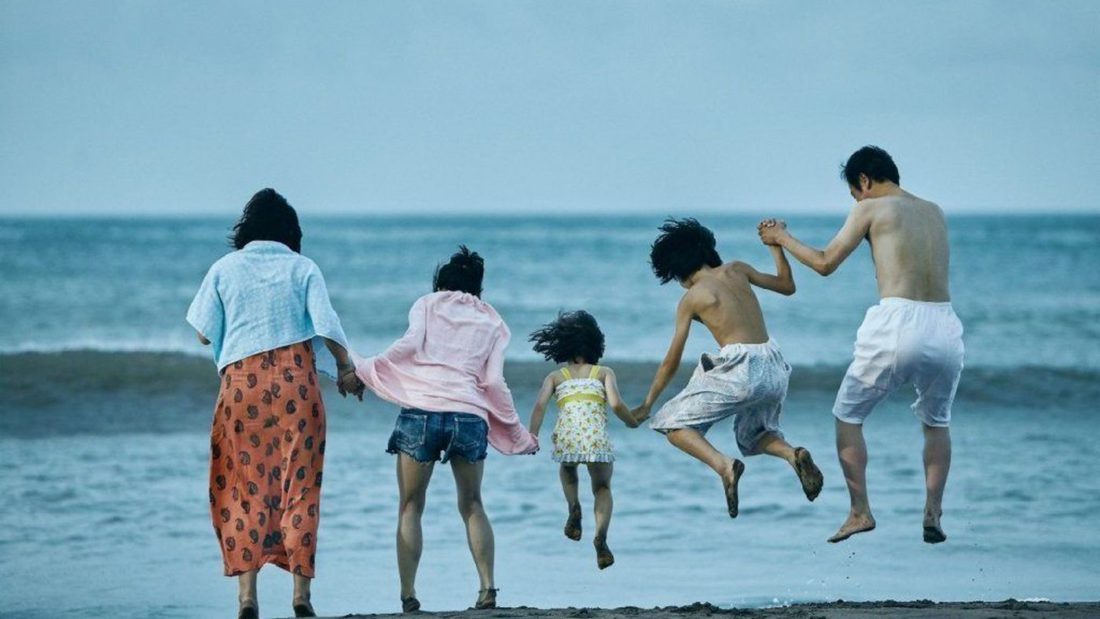
Certainly the quirkiest, most surprising, most lovable movie of the year. I really didn’t want it to end. Do see it! mm